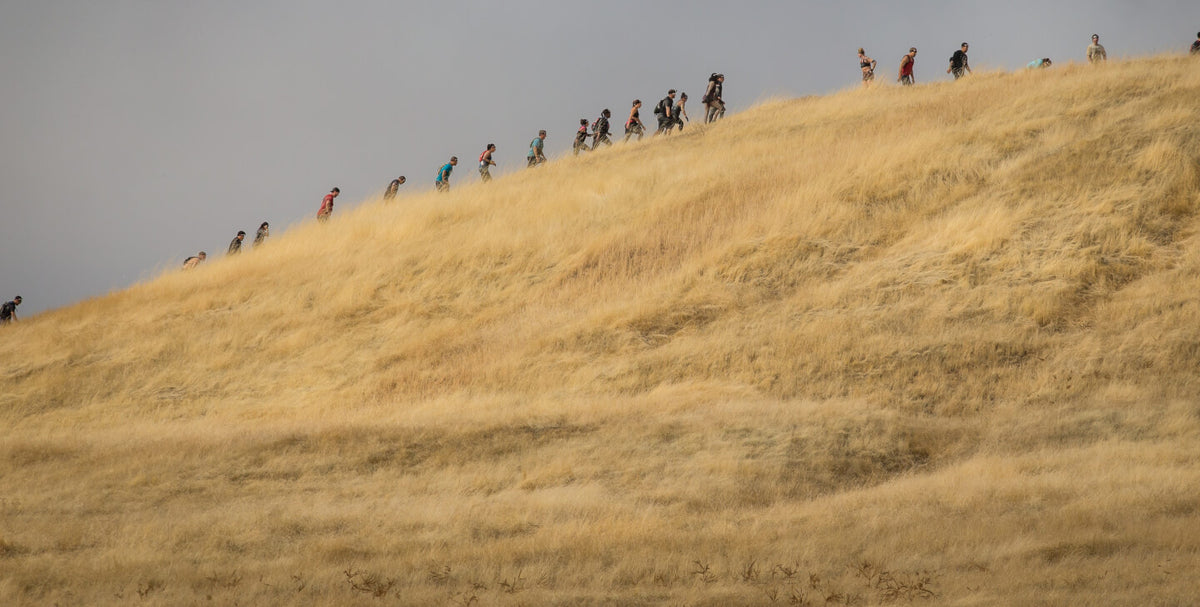Darrel Francke's Trifecta Journey

Darrel Francke was a natural-born racer. Sometimes he raced on motorcycles, and other times he raced on foot, in 100-mile cross-country desert races. When he wasn't racing, he trained horses, practiced rodeo, and went sky diving.
So given his active life, the Blackfoot, Idaho, man was surprised in 2013, when he found himself feeling weak and winded by everyday activities. At one point, he nearly passed out after walking up a flight of stairs. At the time, he wasn't yet 50 years old, but the symptoms made him think something was wrong with his heart. “I went in to the doctor and they did a blood draw,” he says. “The next day I was back, and the day after that I was hospitalized.”

Then came the diagnosis: acute myeloid leukemia, an aggressive blood cancer that begins in the bone marrow and spreads quickly throughout the body. Francke’s doctors gave him a 20 percent chance of beating the cancer.
Treatment was crippling. Within seven days, Francke took in ten big bags of chemotherapy medicine by IV. Then after a three-week break to recover, he took in ten more bags. The process repeated four times in five months, followed by a stem-cell transplant from his brother. The procedure was so invasive that it actually changed Francke’s blood type—he went from O+ to A+. Francke dropped 60 pounds. He was so weak he couldn’t get out of bed. “I couldn’t even get up to go to the bathroom," he says. I just remember staring out of the hospital window for hours and hours, devastated.”
After months confined to a hospital bed, Francke started eating, drinking, and walking the hospital hallways on his own. Doctors discharged him, and he went back to work, hiding in his office most days to avoid the germs that could attack his compromised immune system. But weekly hospital appointments turned into monthly check-ups, and in February of this year, Francke took his biggest step: He re-entered the gym for the first time since his diagnosis. “I remember looking at every single machine, but I could barely move anything,” he says. “I had no stamina and was so upset. What little I did do left me so sore I had to stay home a week.”
But he kept going back, pushing through painful workouts that would have been mere warm-ups in his former life. In order to survive, he knew that he needed to find his strength. “When they tell you have cancer and that there’s a 20 percent chance, all you can think is, ‘Okay, so I’ve got a chance,’” he says. “But it was the fear of not having a quality life or being active again after that scared me the most.”
One evening, during dinner, Francke learned that a few of his friends had signed up for a Spartan Sprint. He was intimidated by three-plus miles of obstacle-studded racing, but he still felt the pull of competition. He had to try. “The minute I signed up, there was this new fire inside of me.”
Francke set out with a new sense of purpose. He started hitting the treadmill harder and working on his upper and lower body strength. After he completed the Sprint, he stood at the top of a hill overlooking the course. He admired what he’d done and, for the first time in years, he felt whole. “Finishing the race was one of the best feelings I’ve ever had, and I cried pretty hard afterward,” he says. “It brought my competitiveness back. This race was what I needed to get fired up.”
To fuel the embers inside him, Francke, now 52, decided to sign up for an 8-mile Spartan Super and became more aggressive with his training. He ran 12-mile trail loops around his home. He built more strength and used online Spartan training guides to help his performance. “I taught myself how to attack obstacles quickly and explosively, so as to not waste any energy.”
To the amazement of Francke’s family, friends, and doctors, he was wildly successful in the Super. Then, on October 28, he blew their minds once again by running a 13-mile Spartan Beast. The man with a mere 20 percent chance to live completed a Trifecta.
“The first few years I didn’t want to talk about my progress because I lived with the fear of the cancer coming back,” he says. “But as I’ve gotten stronger and found my confidence through racing, I want to give other people going through this an uplifting story. People need hope–it’s possible that your body can do amazing things.”
Eliminate your excuses. Download the Spartan Bodyweight Workout Plan.




